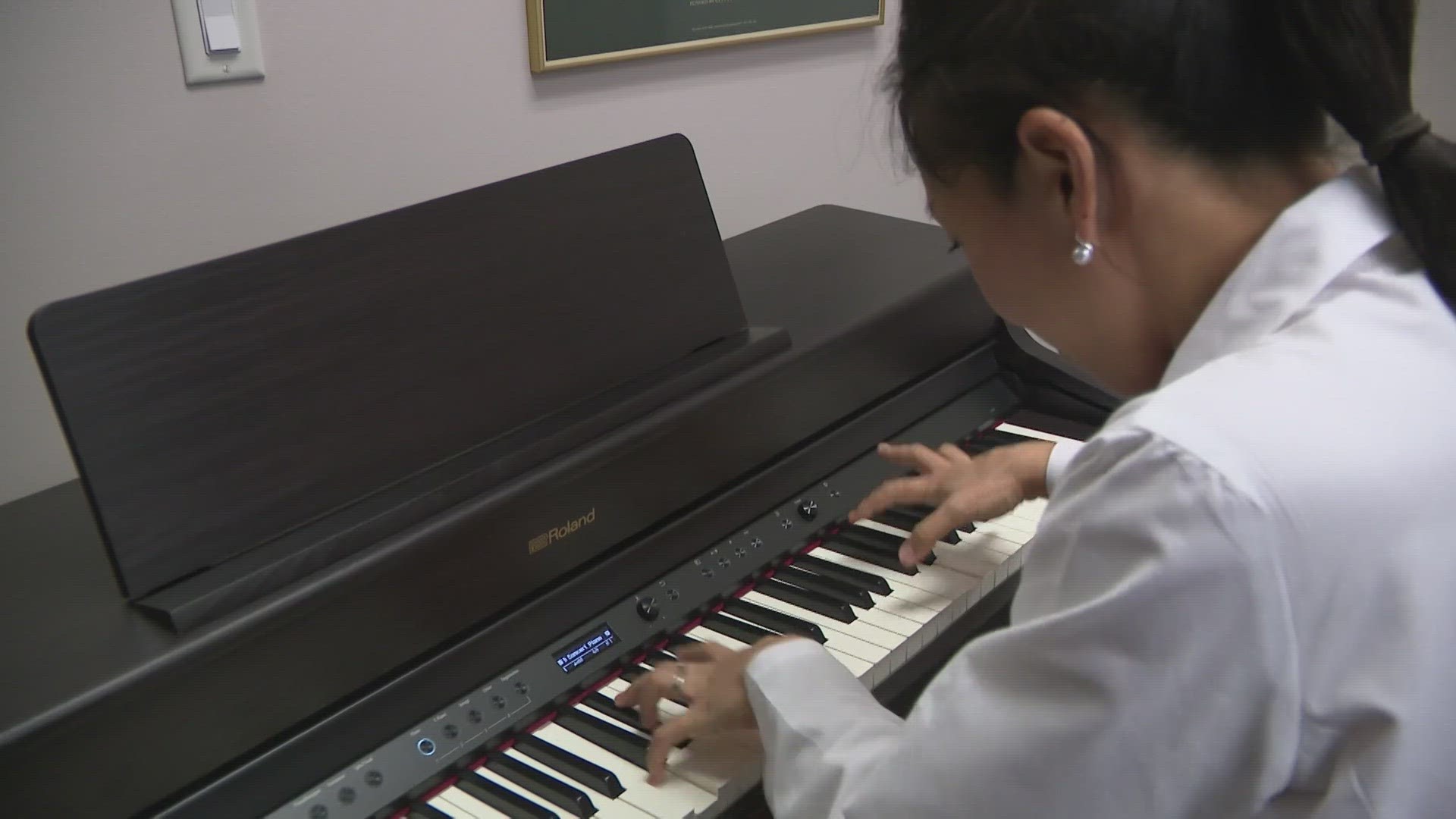HOUSTON — A new series of “Music in Medicine” concerts is debuting this week at the Texas Medical Center.
The Texas Medical Center Orchestra will perform as part of a scientific experiment to capture live electrical brain waves displayed on a large screen for the audience to see and scientists to use. The ultimate goal? To see if music can be prescribed to improve the recovery of cancer patients.
Dr. Mei Rui is both an associate professor of neurosurgery at The University of Texas-MD Anderson Cancer Center and a concert pianist.
“I was three years old when I began playing (the piano)," Rui said. "I performed in public over 600 times.”
The bronze medal winner of the World Piano Competition in 2015, a Yale School of Music instructor and renown musician recently created the Music in Medicine program at MD Anderson. She is now launching a new Institutional Review Board-approved study tracking the brain’s electrical currents during a concert of both a musician and an audience member.
Each participant will wear a scalp cap with 32 sensors to register the electrical brain waves responding to the music. It takes nearly an hour and half to properly adjust the caps which come from University of Houston’s neuro-engineering team, led by Jose L. Contreras-Vidal, Ph.D.
The results will be a live brain-computer interface electroencephalogram (EEG) projected onto a screen for the audience to view.
Rui expects about a dozen concerts, each with a different performer and audience member paired to see if their brains are synced in their reactions to the music. Interested in volunteering? Email mrui@mdanderson.org.
The larger question? Can music be prescribed for a surgeon and patient during an operation and afterwards to improve results. What kind of music used matters.
Rui demonstrated on a small electric piano in her neurosurgery office, banging out loud aggressive measures. Simply put, that is “very bad” for surgeries.
What seems to work best is more neutral classical music which echoes human physiology.
“Music that aligns the with the human resting heart rate 60 to 80s per minute, when the frequency aligns with the low range of mother's soothing voice," Rui explained. "Think of a cello.”
Consider patients who’ve had brain tumors removed or suffered from chemo brain.
“Even COVID patients experience foggy brain for months," Rui said ."Music has been shown to promote oxygenated blood flow to targeted regions in the brain.”
That blood flow helps reduce inflammation in the brain and potentially eases symptoms.
Dr. Frederick Lang is MD Anderson Cancer Center’s Chief of Neurosurgery. He explains different areas of the brain control different parts of the body.
“Music has profound effects on our brain that we don’t fully appreciate," he said. "Through those effects, you can influence all functions of the brain -- your gut, your heart rate, your immune system.”
Potentially one day, certain kinds of music could be used to improve your digestion, heart and overall health.
Dr. Lang is also the audience member participant in the inaugural concert experiment. After all, two brains are better than one.
To donate go to MDAnderson.org/gifts and enter Music-in-Medicine in the support designation.
Dr. Rui’s Upcoming Public Performances:
- Gershwin’s Rhapsody in Blue with TMCO
November 5 at 5pm
Hobby Center for Performing Arts
- Beethoven for All
December 4 at 7:30pm
The Menil Collection

